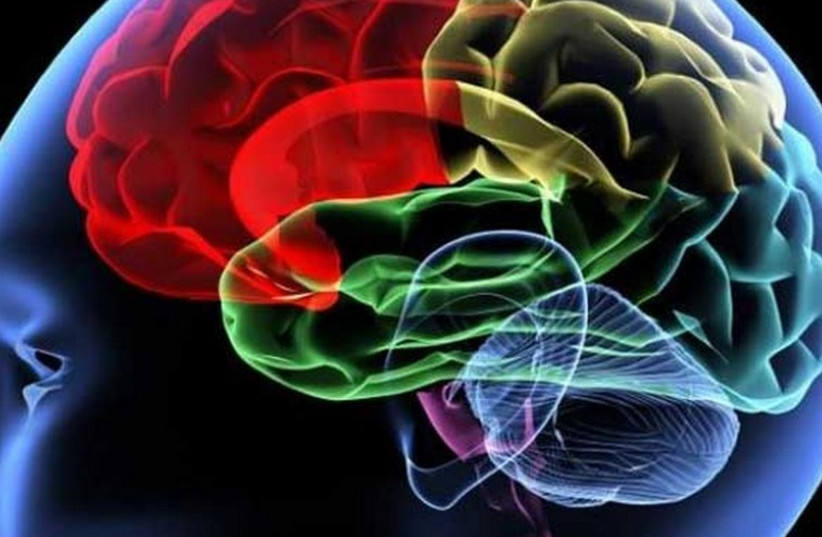'Neuroprothesis' can return communication to paralyzed people
A new project enables communication at a faster rate than is currently available to paralyzed people.

An image of the human brain, (photo credit: REUTERS)
Researchers at UC San Francisco have developed a "speech
neuroprothesis" that translates brain signals into text on a screen, and
have successfully installed it on a man with severe paralysis.
The
achievement is a result of more than a decade of effort by UCSF
neurosurgeon Edward Chang MD and was developed in collaboration with the
first participant in a clinical trial. The study appeared in New
England Journal of Medicine.
“To
our knowledge, this is the first successful demonstration of direct
decoding of full words from the brain activity of someone who is
paralyzed and cannot speak,” said Chang. “It shows strong promise to
restore communication by tapping into the brain's natural speech
machinery.”
The
hope is that the speech neuroprothesis will return the ability of
communication to thousands of people a day, who lose their speech to
stroke, accidents or diseases.
Chang's study
differs from previous work on the subject because past methods have
worked based on a spelling-based approach, where the communication was
spelled out letter by letter. Chang's approach is more compatible with
the fluid nature of actual speech, thus allowing for more rapid and
organic speech.
“With speech, we normally communicate information at a very high
rate, up to 150 or 200 words per minute,” he said, noting that
spelling-based modes of communication work at a slower rate. “Going
straight to words, as we’re doing here, has great advantages because
it’s closer to how we normally speak.”
Chang's
progress was done in collaboration with patients with normal speech
ability at the UCSF Epilepsy Center. Their brains were being scanned,
using electrodes placed on the surface of the brains to locate the
source of their seizures, and they volunteered to have their scans
analyzed for speech-related activity. The success of the study is
largely due to the success of these analyses.
Chang
and his colleagues developed a system that looked promising, but they
couldn't know if it would work until they tried it on someone with
paralysis.
In
order to test if this would work, Chang partnered up with Karunesh
Ganguly MD, PhD, an associate professor of neurology, to create the
Brain-Computer Interface Restoration of Arm and Voice (BRAVO) program.
The
first patient to take part in the program was a 30-year-old man, who
had suffered a stroke 15 years ago. Among other areas of his body that
were paralyzed, the connection between his brain and his vocal cords was
damaged.
The
patient, who asked to be referred to as BRAVO1, worked with researchers
to build a vocabulary of 50 words with which he could build hundreds of
sentences.
For the
study, Chang implanted an array of electrodes on BRAVO1's brain. After
he recovered, the team recorded 22 hours worth of neural activity in
which BRAVO1 attempted to say each of the 50 words many times.
When
the neural scans were ready, the other two lead authors of the study,
Sean Metzger, MS and Jessie Liu, BS, both bioengineering doctoral
students in the Chang Lab used custom neural network models to translate
the signals into words. Thus, when BRAVO1 tried to speak, the network
was able to read the signal and turn it into words.
The team then built short sentences and had BRAVO1 try to say them again and again until the words appeared on the screen.
They then began asking him simple questions, so that he would try and say unscripted sentences, and that also worked.
The system was found to be able to identify 18 words per minute at a 93% accuracy rate.
for the future, the team intends to expand the trial to include more participants. Currently, the study focuses on one participant and has a limited vocabulary. All the same, it is considered a great success and further development is expected.

No comments:
Post a Comment
Stick to the subject, NO religion, or Party politics